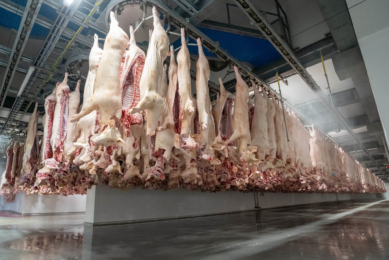Thailand: Value of food exports to slow down further
The value of Thai food exports is forecast to grow by just 2.5 per cent next year to Bt810 billion, due mainly to the strength of the baht, a shortage of raw materials and higher production costs.
Export volume is expected to drop 0.4 per cent from 27.76 trillion tons this year to 27.66 trillion tones in 2011.
Food exports this year are expected to grow by 4.7 per cent to Bt790 billion, below the earlier estimate of expansion of 9-10 per cent to between Bt821 billion and Bt830 billion.
“Food exports in the first and second quarters next year are expected to shrink by 7.5 per cent and 3.6 per cent respectively, following the impact from the strengthening of the baht and this year’s flooding,” said National Food Institute president Petch Chinabutr.
However, shipments in the third and fourth quarters are forecast to increase by 10.1 per cent and 8.7 per cent respectively, due to high demand for food and farm goods in the world market. Demand for imported foods will further increase as the effects of climate change continue to hit production in many countries, Petch said.
He said the institute had sketched out three scenarios: projected export growth of 2.5 per cent next year to Bt810 billion, based on the baht averaging 29 against the US dollar; the baht strengthening to 27 per greenback, causing exports to drop to Bt782 billion; and a worst case scenario of the baht reaching 25 and export value slumping 6.8 per cent to Bt755 billion.
Pornsilp Patcharintakul, chairman of the Board of Trade’s Farm and Food Business Committee, said the baht would be the major factor restricting the value of exports next year, as export volume is projected to be unchanged.
“Global food import demand will increase next year, due to lower supฌply in many countries as a result of natural disasters. However, the strengthening baht will cause slower export growth,” said Pornsilp.
He expects the baht will continue to strengthen to 27 per dollar by the end of next year, with the United States likely to announce a third round of quantitative easing to stimulate its economy following the injection of US$600 billion (Bt18 trillion) in the second phase.
Visit Limpana, chairman of the Food Processing Industry Club of the Federation of Thai Industries, said food producers would face many difficulties next year.
Higher minimum wages, a lower supply of raw materials and an expected increase in commodity prices will increase production costs. Exporters will gain less income due to the stronger baht, he said.
(By Joyce Rainat)











